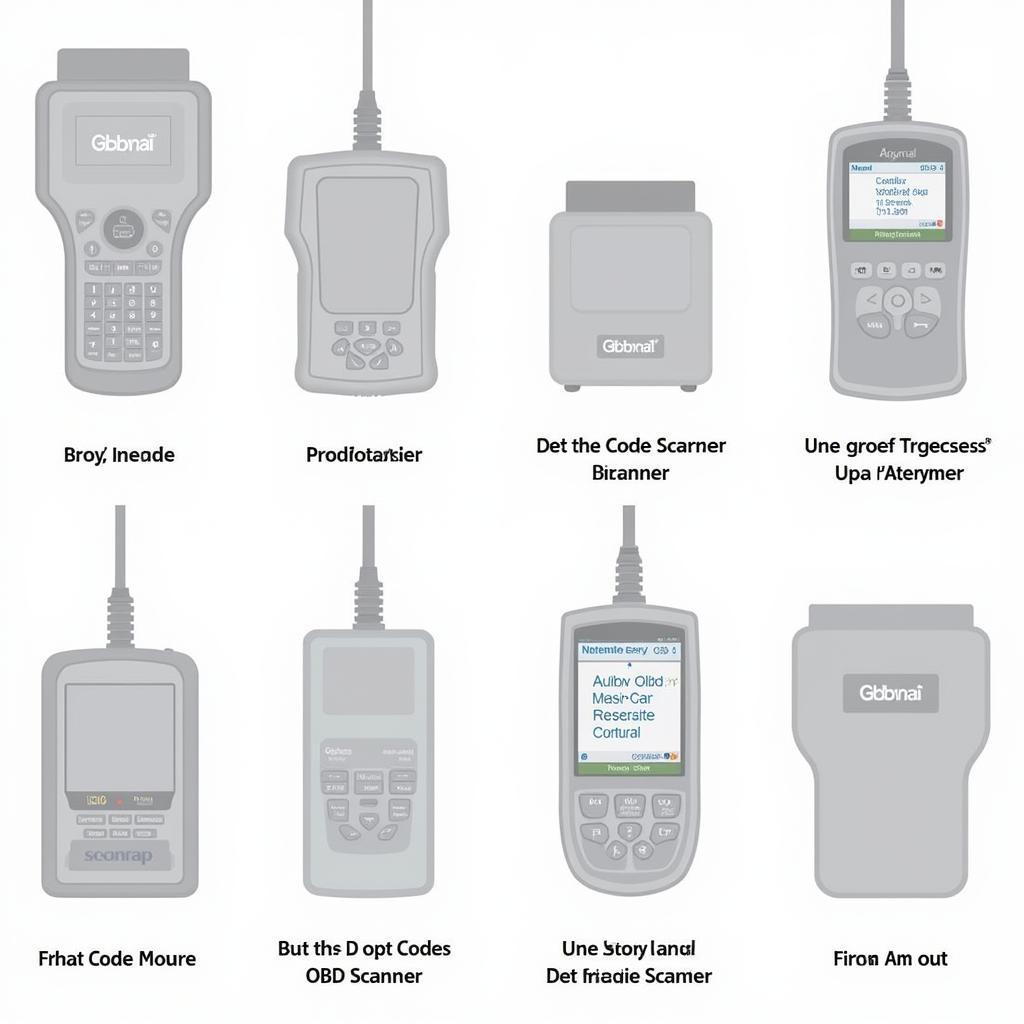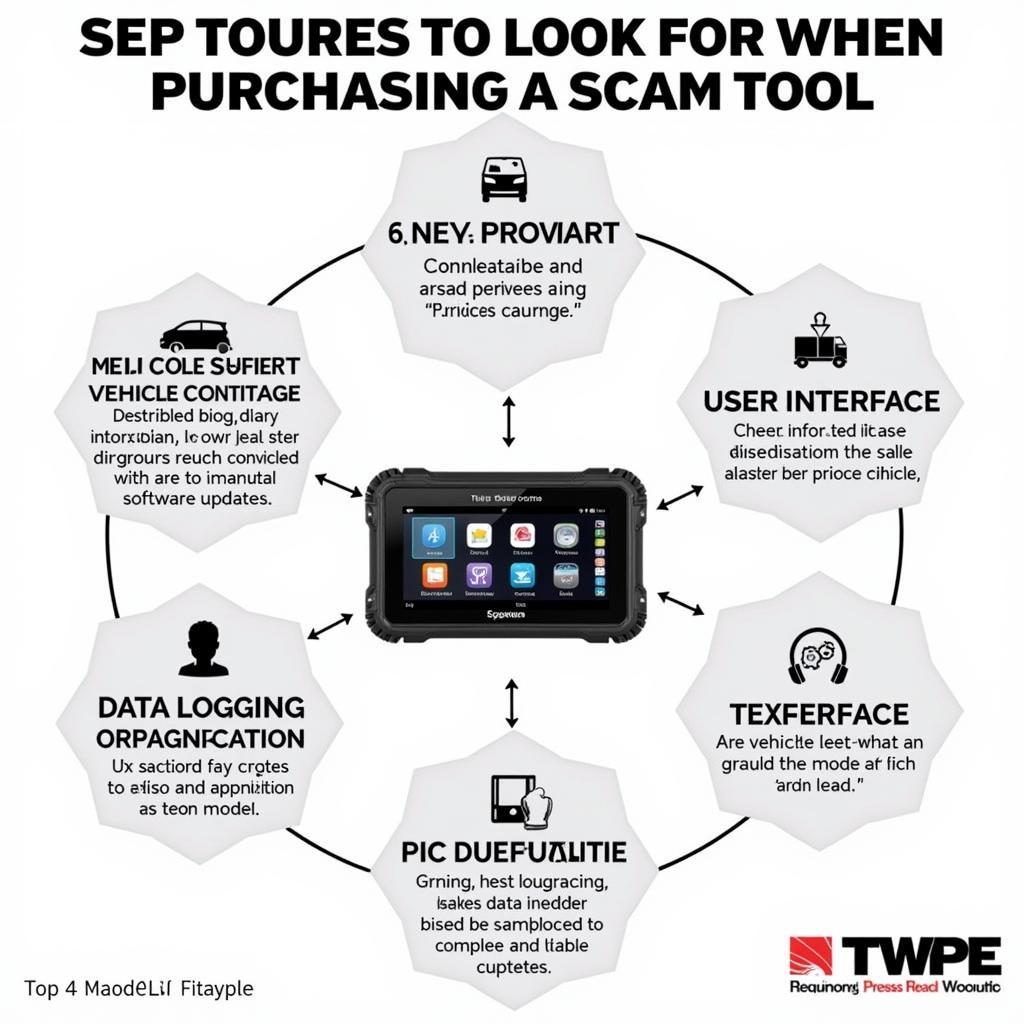Choosing the right scan tool is a critical decision for any car mechanic. Whether you’re a seasoned professional or just starting out, the right diagnostic tool can save you time, money, and headaches. This guide will walk you through everything you need to know about how to buy a scan tool in car mechanic, from understanding different types to considering your budget and specific needs.
Understanding Your Needs: What Kind of Scan Tool Do You Really Need?
Before diving into the world of scan tools, take a moment to assess your actual requirements. Are you primarily working on domestic vehicles, or do you specialize in European or Asian makes? Do you need advanced functionalities like bidirectional control and coding, or are you mainly focused on reading and clearing codes? Defining your needs will help narrow down the vast array of options available.
Types of Scan Tools: From Basic to Advanced
Scan tools range from simple code readers to sophisticated diagnostic platforms. Here’s a breakdown of the common types:
- Code Readers: These entry-level devices primarily read and clear diagnostic trouble codes (DTCs). They are affordable but offer limited functionality.
- OBD-II Scanners: A step up from code readers, OBD-II scanners provide more detailed information about the DTCs, including freeze frame data and live data streams.
- Enhanced Scan Tools: These tools offer advanced features like ABS, SRS, and transmission diagnostics, along with some bidirectional control capabilities.
- Professional Scan Tools: Designed for experienced technicians, these comprehensive tools offer extensive diagnostic capabilities, including bidirectional control, coding, programming, and advanced graphing features.
 Types of OBD2 Scanners for Car Mechanics
Types of OBD2 Scanners for Car Mechanics
Setting a Budget: Balancing Cost and Functionality
Scan tools come at a wide range of price points, from under $50 to several thousand dollars. Determine a realistic budget based on your current needs and future projections. Remember, investing in a higher-quality tool upfront can save you money in the long run by avoiding misdiagnoses and unnecessary repairs.
Feature Considerations: What to Look For in a Scan Tool
Once you have a budget in mind, consider the following features:
- Vehicle Coverage: Ensure the scan tool supports the makes and models you work on regularly.
- Software Updates: Regular software updates are essential for keeping up with the latest vehicle technology.
- User Interface: A user-friendly interface with intuitive navigation can significantly improve your workflow.
- Data Logging and Reporting: These features are crucial for documenting diagnostic findings and sharing information with clients.
- Durability and Warranty: Opt for a scan tool built to withstand the rigors of a workshop environment and backed by a solid warranty.
 Essential Features to Consider When Buying a Scan Tool
Essential Features to Consider When Buying a Scan Tool
Where to Buy: Finding a Reputable Supplier
Purchasing from a reputable supplier is crucial for ensuring product quality and after-sales support. Consider authorized distributors, reputable online retailers, and industry-specific suppliers. Avoid suspiciously low prices, as they may indicate counterfeit or inferior products.
Making the Right Choice: Long-Term Investment
Buying a scan tool is a long-term investment in your career as a car mechanic. Taking the time to research and choose wisely will pay dividends in improved diagnostics, faster repairs, and increased customer satisfaction.
“Investing in a quality scan tool is like investing in a precision surgical instrument. It allows you to accurately diagnose and address the root cause of the problem, leading to more efficient and effective repairs.” – John Davis, Automotive Diagnostic Specialist
Conclusion: How to Buy a Scan Tool in Car Mechanic – Making an Informed Decision
Choosing the right scan tool can significantly impact your effectiveness as a car mechanic. By carefully considering your needs, budget, and the features outlined in this guide on how to buy a scan tool in car mechanic, you can make an informed decision that will benefit your career for years to come.
FAQ
- What is the difference between an OBD-II scanner and a code reader?
- How often do scan tools need software updates?
- What is bidirectional control, and why is it important?
- What are the benefits of data logging and reporting features?
- How can I ensure I am buying a genuine scan tool?
- What are some reputable brands of scan tools?
- Where can I find training on how to use my new scan tool effectively?
Need Help? Contact Us!
For personalized guidance on choosing the perfect scan tool for your needs, contact us via WhatsApp: +1(641)206-8880, Email: [email protected] or visit us at 910 Cedar Lane, Chicago, IL 60605, USA. Our 24/7 customer support team is ready to assist you.

Leave a Reply